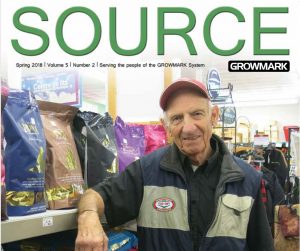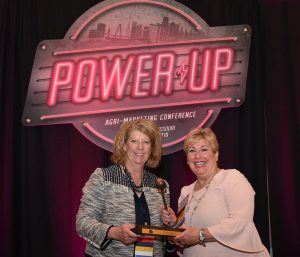
The U.S. Farmers & Ranchers Alliance created the Sustainability Officers Council to provide food companies with access to the farmer and rancher perspective about sustainability in food and agriculture. (PRNewsfoto/U.S. Farmers & Ranchers Alliance)
Six farmers and ranchers selected by the U.S. Farmers & Ranchers Alliance will help to provide food companies with the farmer and rancher perspective when it comes to sustainability in food and agriculture. The new Sustainability Officers Council allows companies to speak with a farmer or rancher before shifting sourcing decisions that could result in fundamental changes in farmers structures.
USFRA is pleased to announce six new Sustainability Officers:
Kyle Bridgeforth – Alabama crop farmer
Tom Crave – Wisconsin dairy farmer
Cassidy Johnston – New Mexico cattle rancher
Nancy Kavazanjian – Wisconsin crop farmer
Hilary Maricle – Nebraska cattle, pig, corn and soybean farmer
Leon Sheets – Iowa pig, corn and soybean farmer
“As former chairwoman of the U.S. Farmers & Ranchers Alliance, I look forward to serving voluntarily as one of the Sustainability Officers and highlighting how all farmers make environmental sustainability a priority,” said Nancy Kavazanjian, Wisconsin crop farmer. “These farmers and ranchers serve as a great representation of today’s agriculture — making continuous improvement a priority by utilizing technology to enhance animal welfare and conserve our natural resources.”
As part of the Sustainability Officers Council, these six farmers and ranchers will participate in conversations with food companies and retailers, offering data, research and knowledge about modern agricultural practices on today’s farms and ranches. In addition, the Officers will participate in USFRA’s Food Dialogues panel discussions at The Sustainable Consortium (May 1-3 in Chicago, Ill.), National Restaurant Association Conference (May 19-22 in Chicago, Ill.) and Sustainable Brands (June 4-7 in Vancouver, B.C.).











